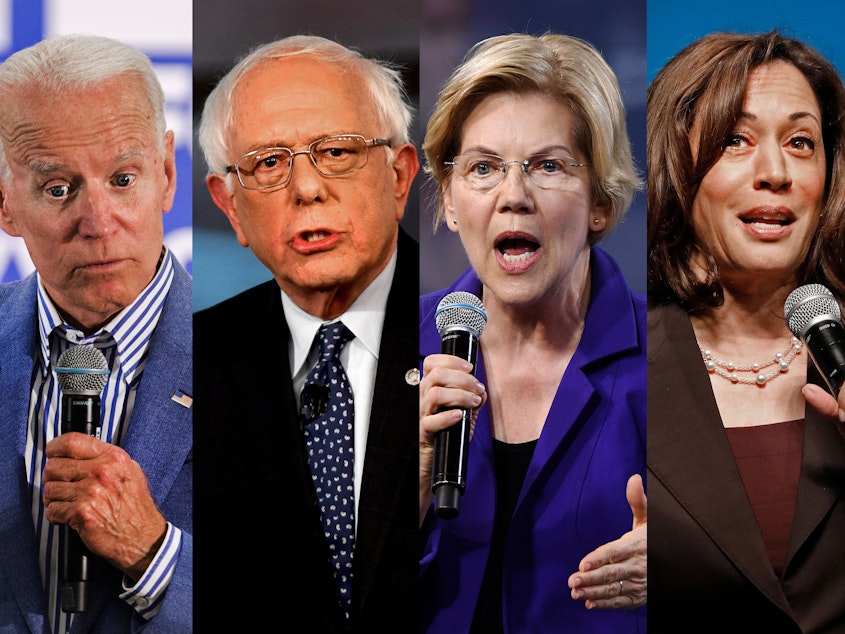Who Made The Cut: DNC Announces Primary Debate Contenders

The Democratic National Committee announced Thursday the list of presidential candidates who will take the stage at the first primary debates, on June 26 and 27.
To accommodate the massive field of candidates, the debates will be spread over two nights, with 10 candidates taking the stage for each two-hour debate.
Here are the candidates who the DNC said have made the cut, in alphabetical order:
Colorado Sen. Michael Bennet
Former Vice President Joe Biden*
Sponsored
New Jersey Sen. Cory Booker*
South Bend, Ind., Mayor Pete Buttigieg*
Former HUD Secretary Julián Castro*
New York City Mayor Bill de Blasio
Former Maryland Rep. John Delaney
Sponsored
Hawaii Rep. Tulsi Gabbard*
New York Sen. Kirsten Gillibrand*
California Sen. Kamala Harris*
Former Colorado Gov. John Hickenlooper
Washington Gov. Jay Inslee*
Sponsored
Minnesota Sen. Amy Klobuchar*
Former Texas Rep. Beto O'Rourke*
Ohio Rep. Tim Ryan
Vermont Sen. Bernie Sanders*
California Rep. Eric Swalwell
Sponsored
Massachusetts Sen. Elizabeth Warren*
Writer and spiritual guru Marianne Williamson*
Entrepreneur Andrew Yang*
In order to qualify, all candidates had to hit either a fundraising or a polling threshold. For fundraising, candidates had to have at least 65,000 donors and at least 200 donors in each of 20 states. For polling, candidates had to garner at least 1% support in at least three national or early-state polls.
Candidates marked with an asterisk (*) above met both thresholds according to the DNC.
Sponsored
On Friday, the DNC is set to announce which 10 candidates will take the stage on each night of the debates on June 26 and 27.
Of the 23 major candidates in the race, three did not make the first debate: Montana Gov. Steve Bullock; Miramar, Fla., Mayor Wayne Messam; and Massachusetts Rep. Seth Moulton.
Don't see the graphic above? Click here.
Not all of the candidates agree with the DNC's assessment. On Thursday morning, Bullock's campaign sent a letter to the DNC making the case that he should be in the debate.
At issue is one ABC News/Washington Post poll from February, which had Bullock registering 1% support. Bullock's camp lists this among his qualifying poll results. And indeed, in its initial qualifying criteria, the DNC listed both ABC and Washington Post polls as qualifying polls.
The DNC recently told Politico that it would not count that poll because it asked voters whom they would support in the primary in an open-ended fashion, rather than having them pick from a list.
Bullock waited to enter the race until the Montana legislature was out of session, which also gave him less time to try to amass 65,000 donors. [Copyright 2019 NPR]



